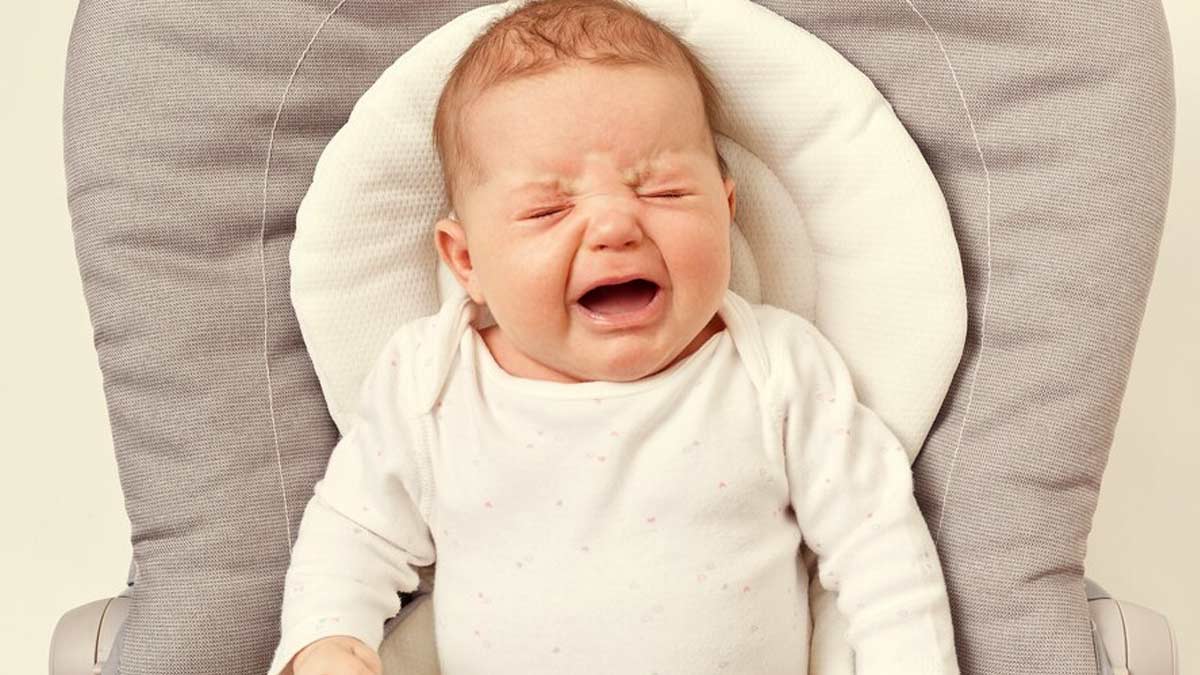Does Winter Increase Colic in Babies? 5 Surprising Seasonal Triggers You Didn’t Know

For parents, winter can be a challenging season, especially when their baby seems to cry more often than usual. Infantile colic, a condition marked by excessive crying in healthy babies, may be influenced by seasonal changes. According to Dr Nishant Wadhwa, Senior Consultant, Paediatrics, Sir Ganga Ram Hospital, New Delhi, colic typically occurs within the first three months of life and is one of the most distressing symptoms for both babies and their caregivers. While its exact cause is still unknown, factors like cold weather, dehydration, and dietary changes could worsen the condition.
RELATED: How To Calm A Colicky Baby: Causes, Soothing Tips, And What Every Parent Should Know
What Is Colic?

Colic is identified when a baby cries for more than three hours a day, at least three days a week, over several weeks. Dr Wadhwa explains that colic might stem from gut microflora imbalances, overfeeding, underfeeding, or allergies, such as a reaction to animal milk proteins. Another potential cause is swallowing excessive air during feeding, especially if burping is incomplete.
Interestingly, cold air or chilly weather can also act as a trigger, as it increases a baby’s sensitivity to colic. While some studies suggest seasonal variations do not affect colic, others argue that cold weather can lead to heightened discomfort in babies, resulting in more frequent colic episodes during winter.
Why Does Winter Worsen Colic?

Dr. Archana Dhawan Bajaj, Gynaecologist, Obstetrician and IVF Expert, Nurture IVF Clinic, New Delhi, notes that the number of colic cases tends to rise during the colder months due to a combination of environmental and physiological factors. Reduced temperatures, decreased activity levels, and lower water intake are all significant contributors to colic during winter.
These conditions can lead to dehydration, digestive sluggishness, and even impaction (when something gets stuck in a body cavity like stool in your rectum), which manifests as stomach discomfort and excessive crying.
5 Seasonal Triggers For Winter Colic
Cold Air
Cold air can irritate a baby’s delicate digestive system. Dr Wadhwa mentions that exposure to chilly weather might increase colic sensitivity, causing discomfort that leads to prolonged crying spells.
Dry Air Resulting In Dehydration
Winter’s dry conditions can result in reduced fluid intake, which may contribute to mild dehydration in babies. Dehydration, in turn, can disrupt digestion, worsening colic symptoms.
Incomplete Burping
Thicker clothing in winter may lead to hurried feeding sessions and incomplete burping, causing gas to build up in the baby’s stomach, says Dr Bajaj. This trapped air can trigger crying episodes.
Dietary Adjustments
Changes in feeding routines during winter, such as overfeeding or introducing new foods, can upset a baby’s digestive balance. Dr Wadhwa highlights food allergies, particularly to animal milk proteins, as a common cause of colic.
Reduced Physical Activity
According to Dr Bajaj, less outdoor time and decreased activity levels in winter can slow digestion. Inactive babies are more prone to experiencing discomfort, which may manifest as colic.
Early Signs And Tips To Manage Them
-1736400942560.jpg)
Dr Bajaj advises parents to watch for early signs of colic, including decreased hunger, thirst, or reduced bowel movements. Advanced symptoms like rolling, pawing, or pulling at the flanks may indicate worsening discomfort.
To manage colic during winter,
- Hydrate your baby adequately. Breastfed babies may need more frequent feeds, while formula-fed babies may require small amounts of water (consult a paediatrician first).
- Ensure proper burping after every feed to avoid trapped gas.
- Use a humidifier to maintain indoor air moisture levels and prevent dehydration caused by dry air.
- Keep your baby warm but avoid overheating by dressing them in breathable layers.
Conclusion
Winter poses unique challenges for managing colic, but understanding these seasonal triggers can help parents ease their baby’s discomfort. While colic episodes can be distressing, they are typically temporary and often resolve by the time a baby is three to four months old. Our expert reassures parents that with proper care and attention, these episodes can be managed effectively, making the colder months more bearable for both babies and their caregivers.
link




:max_bytes(150000):strip_icc()/asian-sick-little-girl-lying-in-bed-with-a-high-fever-952683074-5b5b784046e0fb005027ca13.jpg)

